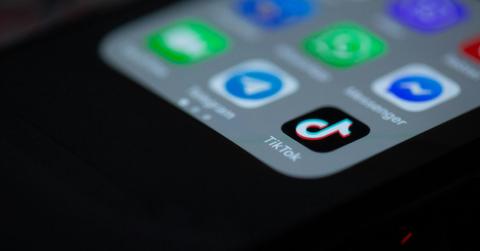Content Creators Express Concern As Senate Weighs Bill That Could Potentially Ban TikTok

As the Senate considers whether to pass legislation that could lead to TikTok being banned in the United States, content creators and TikTok users are expressing concern about the potential widespread effects a ban could have on their incomes and the communities they have created.
Legislation Passed By The House
On March 13, the House of Representatives passed a bill that could lead to a nationwide ban of TikTok if ByteDance, the Chinese-backed owner of the popular app, does not sell its stake. The bill is now with the Senate, where it is unclear what will happen, according to the Associated Press (AP).
Lawmakers are concerned that ByteDance is beholden to the Chinese government and could access the data of TikTok users in the U.S., posing a threat to national security.

ByteDance now has six months to sell TikTok before the bill becomes law and the app is banned. CBS News reports that after those six months, ByteDance and TikTok would likely challenge the law in federal court, where enforcement of the ban could be delayed for months or years.
However, the more than 170 million U.S. TikTok users will not be kicked off of the app any time soon, as it needs to be passed by the Senate before sending to President Biden, who recently said he would sign it.
Legislation Supporters And Safety Concerns
Proponents of the bill have been intentional about avoiding using the word “ban” when describing the impact this bill would have in practice. Jake Sullivan, President Biden’s national security adviser, told the Washington Post the bill is “a question of ownership,” not a ban. Two senators on the Intelligence Committee, Democrat Mark Werner and Republican Marco Rubio, have also stated they do not see the legislation as a ban, telling Slate: “This legislation is not about banning TikTok.”
The concern for bill proponents is the company’s Chinese ownership, specifically China having access to American’s personal data, and potential Chinese manipulation of the app’s algorithm to push propaganda, Slate reports.
Beyond the potential ban, parents are advocating for guardrails on social media to help protect minors from the various dangers online. A coalition of parents earlier this week urged Senate Majority Leader Chuck Schumer to pass the Kids Online Safety Act: “Banning TikTok won’t protect children because the problems are built into all social media. And Congress has the power to do something about it,” the parents wrote in an open letter to Schumer.
Parents Magazinerecently posted a list of top TikTok safety concerns for children, which included “predator use,” “inappropriate content,” “anxiety,” “dangerous trends,” “cyberbullying,” and “user data privacy.”
Concerns about the impact of TikTok on mental health are widespread. In late 2023, Amnesty International published a report detailing how TikTok encourages self-harm and suicidal ideation. The report highlighted how TikTok’s content algorithm poses a danger to young users by “amplifying depressive and suicidal content.”
Creator And Business Impact

Those who use the app to make money as influencers or through their own businesses have expressed concern that the ban would hurt people who rely on the app for a significant portion of their income, according to the AP. More than 7 million American businesses market or sell their products through TikTok, driving $14.7 billion in revenue for small businesses in 2023. A ban on TikTok could mean ad dollars typically spent on TikTok could be redistributed to other platforms such as Meta, YouTube and Google, Digiday reports.
Digital creators told the AP TikTok has become a “digital equalizer,” providing a platform for people of color and other marginalized groups to have more visibility and where users can find people who look like them, share similar interests and have similar backgrounds.
Users have also expressed concern about the impact a ban would have on access to education and resources, as TikTok has partnered with more than 800 public figures, publishers, educational institutions and subject matter experts through its #LearnOnTikTok initiative, according to theWashington Post.






